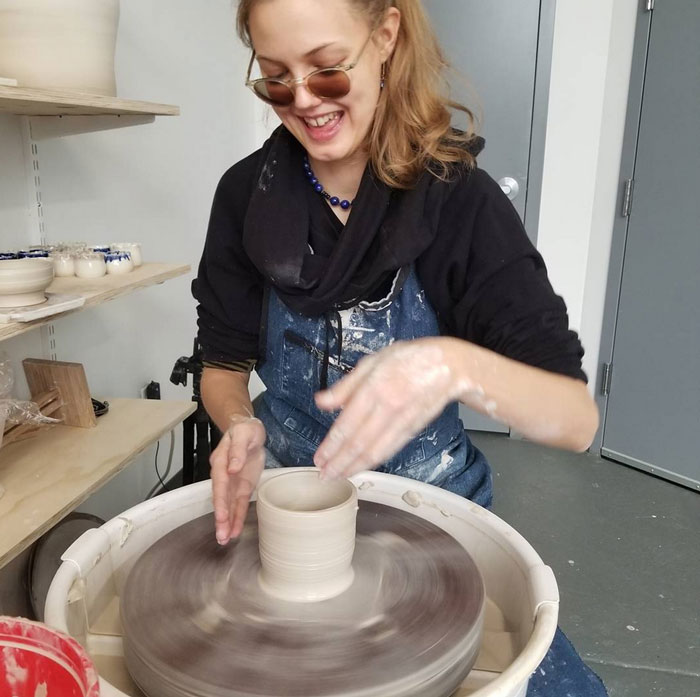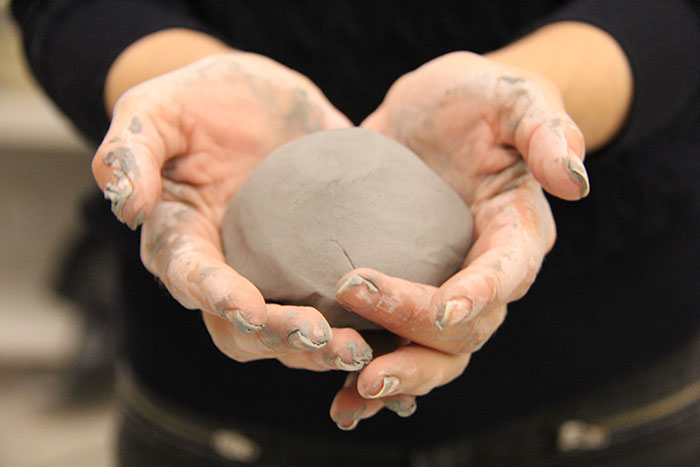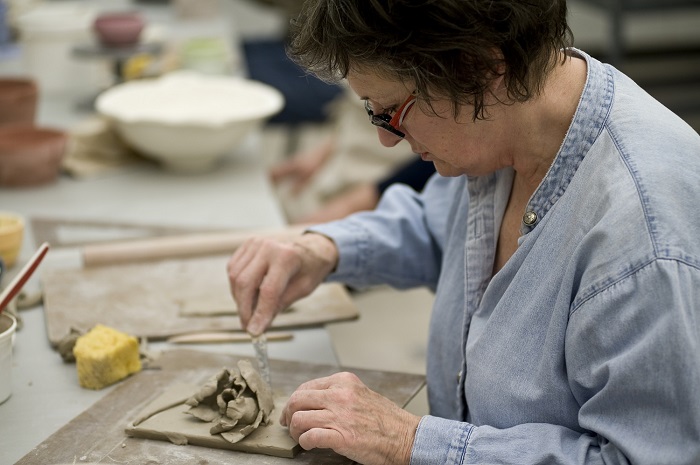Of Mind and Mud: How Clay is Shaping Up to be the Next Big Mindfulness Trend
Pottery has taken on celebrity status lately, with the fashion world, star Instagram potters, and even mega-celebrities like Brad Pitt embracing ceramics. It isn’t hard to see its allure—in a world that feels increasingly unstable, kneading a slab of clay with your hands is a great way to unplug and connect with the present moment.

Model Lindsey Wixson, who recently quit her fashion career to pursue pottery. Photo courtesy @lindsaywixson.
Indeed, the therapeutic effects that experimenting with clay can have are much needed in today’s fast-paced society, where nearly a quarter of Canadians aged 15 and older find most days to be ‘quite a bit’ or ‘extremely stressful’, and more and more health experts are starting to embrace pottery and other forms of art-making as a crucial element in maintaining one’s wellbeing.
In a study published in Art Therapy last year, researchers found that levels of cortisol (the body’s stress hormone) decreased in 75% of participants who had engaged in artistic production. More recently, researchers in the UK conducted an inquiry into practice and research in the arts in the areas of health and social care. Among the many benefits discovered, the study showed that artmaking promoted speedy recovery after illness; helped alleviate anxiety, depression, and stress; and ultimately reduced spending on health and social services.

Photo: Celia Zhang
Since our fingertips contain some of the densest areas of nerve endings on the human body, simply playing with clay and stimulating the pressure points in our hands can have immense therapeutic benefits. Clay also provides a natural way to connect with body and breath—the malleability and immediacy of the material naturally integrates the mind-body connection, something much needed in our often hectic lives. “I’m having a moment of getting to feel emotion at my fingertips,” Brad Pitt recently revealed in a GQ interview in which he discussed his newfound passion for pottery.

Clay class at the Gardiner Museum. Photo: Lisa Sakulensky
Ultimately, experimenting with clay has practical advantages that you don’t need celebrity status to reap. With proven benefits for both one’s physical and mental health, pottery is the perfect way to integrate self-care and creativity into your daily life.
The Gardiner Museum’s clay mindfulness classes, led by registered art therapist Suzanne Thomson, give participants the opportunity to explore clay as a medium for deepening experiences of the present moment. Visit our Adult Clay Classes page to see our current offerings.